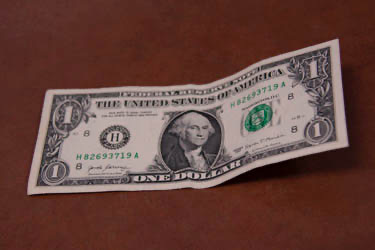Are the Rich Actually Wealthy?

Are rich people also recognized as the wealthy? Or are they two completely different things?
October 4, 2021
“We think external things we buy will bring us happiness, but then we get them and we wonder what’s next?” said psychologist Elizabeth Lombardo.
Money is a topic that’s familiar to all, especially during troubling times. While being rich may have its benefits, the happiness that money provides may not be the panacea people think it is.
Everyone wants to be rich. After all, you could buy almost anything, which would presumably bring unending happiness. Money can certainly make one’s life more comfortable and enjoyable, but having a fortune doesn’t guarantee happiness nor fulfillment in life. According to some, the opposite might just be the case.
The University of Berkeley conducted a study investigating the emotions associated with wealth and poverty. In their experiment, the rich displayed some negative moral traits, like excessive aggression and selfishness. This models how people might act if they were to have unlimited cash.
“Rich people sometimes make poor judgments and that might affect how they make their money,” said Bettina L, a 7th grade student at Day Creek Intermediate.
Money has a subtle way of impacting emotion, changing the way people think. Though cash is nothing more than colored paper, it has the power to impact people in deeply positive and negative ways.
Twitch founder Justin Kan, was a victim to his own financial success. Kan had earned nearly $1 billion when he sold his company to Amazon. Due to a major increase in personal income, he thought the sale of his popular streaming platform would change everything. After all, Kan now had the resources to buy anything. How happiness should have been assured. Yet four years later, he was still struggling. “(At 31,) I achieved everything I ever dreamed of. When I was 35, I realized I was just as unhappy as I’d ever been.”
An abundance of money doesn’t seem to promote fulfillment, but only prompts people to strive for more and more wealth. This can create an unhealthy habit of desiring more, of which Kan became a victim.
“That constant need to do better and better is what drove me to start more and more companies — but it wasn’t enough,” Kan said.
Money creates a drive to more work. At a time when some people appear to have a substantial amount of money, it just doesn’t seem to be enough. If this is how the rich react to limitless earnings, where is their ceiling?
“The poor might be rich [in their] morals. They donate, while the rich sit there with greedy money. Money is not very tangible. It’s currency to get yourself temporary happiness,” said 7th grader, Ethan T.
A recent social experiment in Basic and Applied Social Psychology included a series of games with a real cash prize. The results showed that the poor were more generous with their money, while those with higher status were less likely to make a significant contribution.
Wealth affects how individuals behave in unexpected ways. The wealthy prefer to have control over their money, while the poor tend to empathize with those who suffer.
“We need to respect [people in poverty] even though we have a lot of money. We have to respect others and what it feels like if they don’t have as much,” said 8th grader Olivia G-S.
According to the London Economic, people with a lower income status are willing to donate a higher percentage of their income in comparison to those who are rich. In contrast, the wealthy prefer to keep their money for themselves.
The privilege of being rich can create a false impression of worth and value. An abundance of money portrays the idea that those with wealth are more important than those who don’t have as much. `
“People think that being rich is all about having money. But the times I’ve had the most money is when I’ve been unhappiest,” said Phil Taylor.





